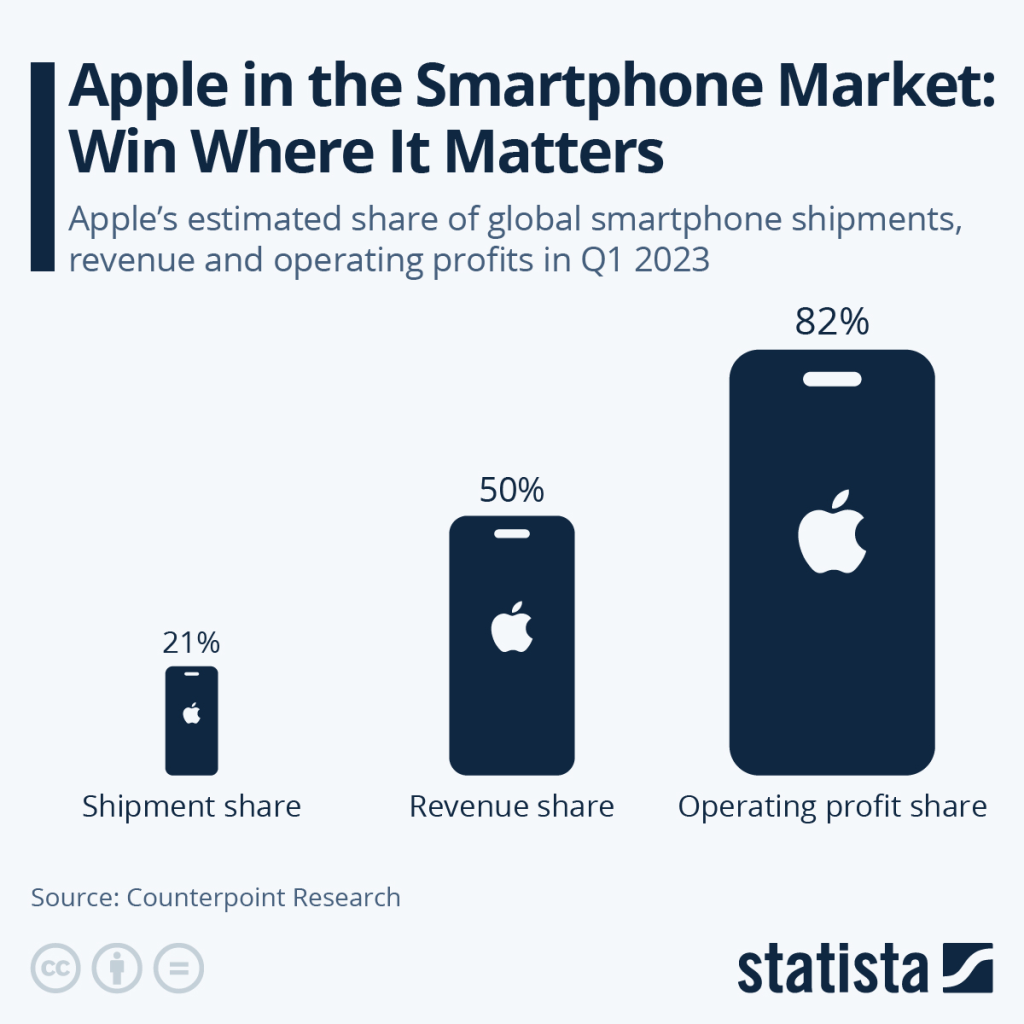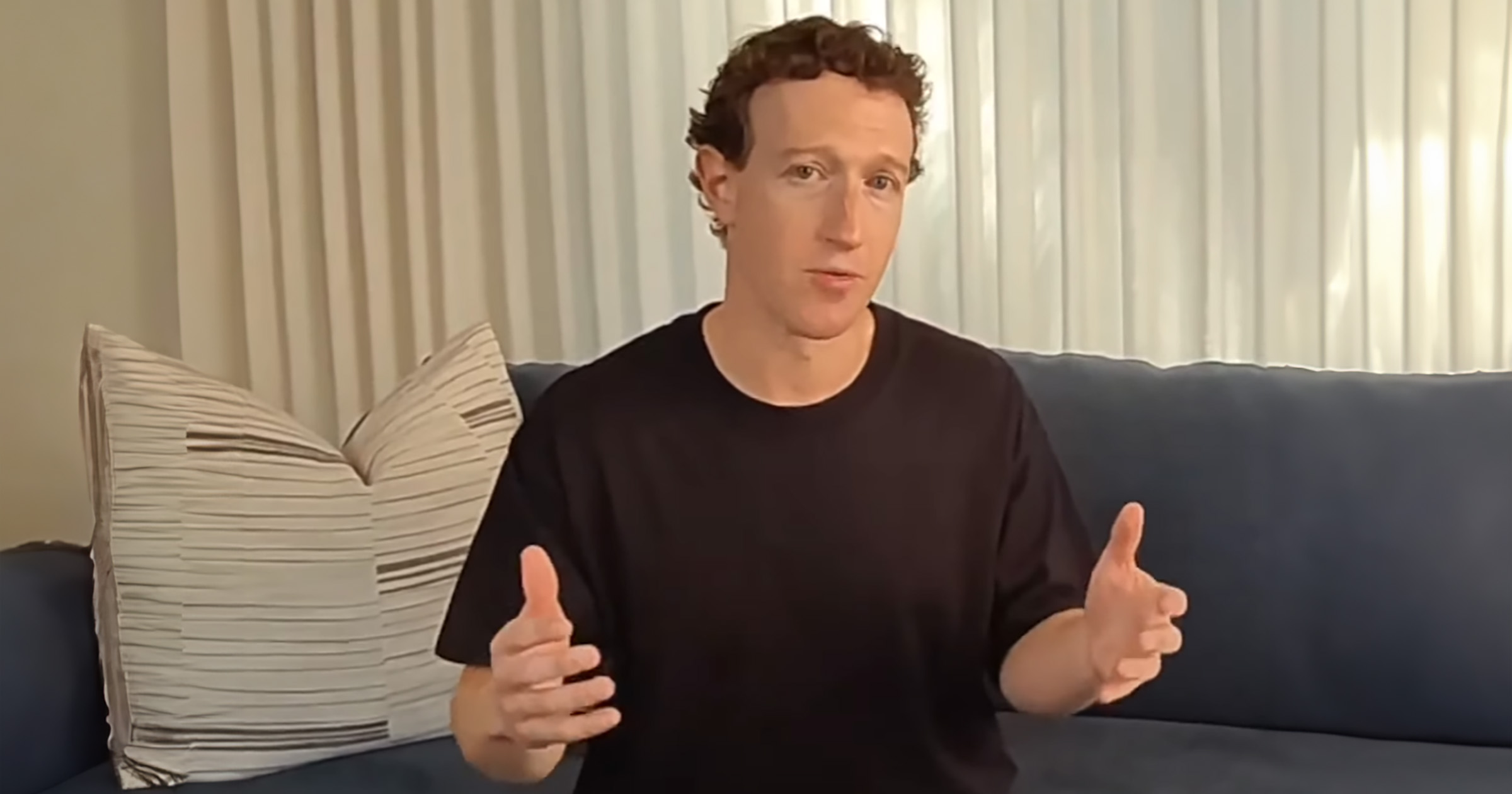Disclaimer: Opinions expressed below belong solely to the author.
Mark Zuckerberg is clearly upset that Apple can get away with selling a $3500 headset that people around the world are fawning over (even if recognising that not everything about it is perfect), while he’s struggling to make money with his $500 Quest 3, as Reality Labs — Meta’s VR/AR business — is bleeding tens of billions of dollars each year.
Why would anybody buy Apple Vision Pro?
So, as he’s settling into his role of Steve Ballmer of our time, he recorded a short video, claiming that Meta’s Quest 3 is not only a better value than Apple’s Vision Pro but a better product overall, full stop.
In short, according to Mark, you can do a lot more with Meta Quest 3 (play games, watch videos, work etc.); it is also lighter and more comfortable, and the only thing that Apple is delivering for $3000 more is higher resolution.
In other words — why would anybody buy Apple Vision Pro over Quest 3?
Well, before we get to that, let’s see what Microsoft’s Steve Ballmer said about the iPhone when it was announced in 2007:
“500 dollars? Fully subsidized? With a plan? I said that is the most expensive phone in the world. And it doesn’t appeal to business customers because it doesn’t have a keyboard. Which makes it not a very good email machine. […] Right now, we’re selling millions and millions and millions of phones a year. Apple is selling zero phones a year. In six months, they’ll have the most expensive phone by far ever in the marketplace…”
Steve Ballmer, January 2007
When was the last time you saw a Windows Phone?
They went extinct within a decade of Ballmer’s boastful Apple-bashing, along with the behemoths of Nokia and Blackberry, once ruling the mobile phone market.
The expensive toy without a keyboard, that so many people saw the iPhone as, is today making the most money, even if it doesn’t sell in quantities as large as Android phones do.

Apple is responsible for little over 20 per cent of all shipments but they generate 50 per cent of the global smartphone revenue and a whopping 82 per cent of all profits from the business.
This is what Apple is aiming for with Vision Pro.
Jack of all trades, master of none
Like an oldschool nerd that he is, this is what Zuckerberg is building at Meta — an all-round device that you can use for nearly everything but one that does not stand out in any particular way.
His vision appears to be that one day the Quest devices will be able to do anything you want, that you will never take them off and live in the metaverse — a term that, notably, nobody is using anymore, after it has become public mockery before it ever took off.
Now, this idea may not be all that different from Apple’s ultimate goal, in some distant time in the future.
Perhaps, indeed, one day we’re going to be putting on a set of digital goggles to do anything: gaming, working, watching movies and so on.
What is different, however, is the approach.
Instead of trying to cram in as much as possible into a single product, Apple is focusing on making at least one thing about it really great today. And with this first generation it’s the image quality of its displays, that currently nobody in the IT mainstream can really match.
Unlike Zuckerberg, who tried to convince us that we’re going to live in virtual worlds, meeting with cartoonish avatars of our buddies, Apple recognises — in a spirit true to Steve Jobs — that technology should blend in with what we already do and how we live our lives.
In other words, while Meta started with Virtual Reality (VR), Apple is starting with Augmented Reality (AR). How Zuckerberg doesn’t see this fundamental difference is both perplexing and comical.
For that reason, these devices shouldn’t even be compared. Meta has sold millions of cheap headsets of several generations, mostly for people looking for relatively affordable entertainment in VR.
Apple is selling Vision Pro to those who want to add high-end technology replacements of many of their existing devices, making for a much more minimalist lifestyle that is so fashionable these days.
Just look at the example below:
With AVP you no longer need a 70 inch TV or a massive desktop screen to do meaningful work on. You can just carry your Macbook around and expand both your work space as well as create a virtual media centre for when you watch movies, on demand.
You can append your spaces, walls and furniture with app windows wherever they might be useful, to provide reminders, serve as timers, guide you through cooking, fixing things in the house and so on.
And with high-quality passthrough video, you don’t even need to take the device off as you walk around — and don’t feel like you’re stuck in a blurry 720p render of the world around, like you may using Quest.
Yes, you can do more things with Meta’s device but none of them is really outstanding.
It’s good for gaming, good for entertainment, decent for work — but it’s not great at any of them. This is why people will not pay more than $500 for it, because it’s still just a middle-of-the-road compromise in a plastic case, that most customers will use for fairly brief gaming sessions, little else.
Apple, on the other hand, stated the function of the device clearly: spatial computing.
Adding a new dimension to the technology in your life, projected to your eyes through a single high-quality device.
They don’t overpromise on functions — they merely promise that whatever you do on AVP will blend in with surrounding reality as seamlessly as it is currently possible. That’s it.
All-you-can-eat buffet meets fine dining
And there is place for both. This is another judgement error Zuckerberg is making, probably because he’s so frustrated with the attention Apple is getting despite only entering the new market.
Meta offers a little bit of everything for everybody but Apple, in its trademark way, has created another product that is a status symbol, like the iPhone.
Just like you visit a food court to fill yourself for a few bucks but splurge on a nice restaurant for events that really matter, you don’t buy the Quest because you want the Quest but because you want to use VR. But you buy Vision Pro because you want the Vision Pro.
And while that may appear to be rather vain of us, it’s really good for business.
For that reason Apple isn’t really in competition with Meta, even though Zuck’s ego appears to be bruised. I have no doubt that Quest is going to vastly outsell Vision Pro just like Android phones keep outselling the iPhone.
But it is also clear that Apple is going to make far more money from a considerably smaller customer group, while Meta’s Reality Labs are going to be stuck seeking profitability.
The most mediocre billionaire
Mark Zuckerberg is currently the 4th richest person on the planet, with a net worth of over $166 billion and yet, among fellow Silicon Valley technologists he’s somewhat an aberration.
Despite his enormous success, you’ll struggle to find greatness in anything he does. Most other big names — Musk, Bezos, Gates, Page, Brin, Jobs — have produced multiple ground-breaking products and services, setting new standards for years.
The only thing that Zuck has ever invented was the Facebook timeline, which became the default UI in the social media age, introduced in a time when Myspace required you to visit individual pages of your friends manually.
But ever since it launched 20 years ago, Zuckerberg has only been a follower, typically late to every new trend and regularly failing at innovation.
He built his business empire through acquisitions of companies that successfully did something he struggled with — like Instagram or Whatsapp — often neglecting them somewhat, opening opportunities for other competitors (like TikTok today).
I’m sure most readers will agree with me in observing that there’s nothing “great” about Facebook, which is still plagued by bugs, oppressive moderation policies and endless spam and phishing attempts, that the company appears to do nothing about.
Instagram, similarly, feels stuck in time. It’s 2024 and the web version is barely usable, while nobody at Meta thought to come up with a solution for posting links on the platform, currently still served by clunky 3rd party link-in-bio services.
His venture into VR — and its results — were no different.
Facebook acquired Oculus for $2 billion 10 years ago and this is how the flirt with Virtual Reality started, costing tens of billions more in subsequent years with little to show for the money spent.
The metaverse, that we were supposed to transfer our lives to, is all but dead, despite Mark making a big bet and even renaming the company for it.

Oculus devices are very good for what they offer but they too fall short of greatness, which explains Zuckerberg’s conniption upon seeing Vision Pro threatening to take the customers with the deepest pockets away from him.
But that also makes him a hypocrite, since he tried to approach them with his own upmarket Oculus Pro, launched in late 2022 for not an insignificant amount of $1500.
The device was widely panned in reviews, failed to gain any traction and was effectively discontinued in mid-2023.
That’s why seeing him now touting Oculus 3 as great value vs. Vision Pro is rather amusing considering how badly his attempts at making a premium product bombed just months ago.
He spent a ton of money making a good average product, which by his own murky descriptions has no single clear use case that is well-communicated to buyers. Is there any wonder why it keeps making catastrophic losses?
His problem is lack of commitment to detail, both in conceptual phase and in execution. Everything he does seems like it emerged from a cloud of chaotic ideas, which explains why he can’t grasp the very basic differences between Meta’s headsets and the latest Apple device, leading his entire VR business astray.
Fortunately, other units make enough money to make up for the shortfall, elevating Meta’s stock to new heights recently, which is why it’s unlikely that shareholders will start calling for his head anytime soon.
But it’s equally unlikely that anything that Reality Labs produce will hold its own vs. ruthlessly organised machinery at Apple — one of few companies Zuckerberg can’t even hope to acquire.

